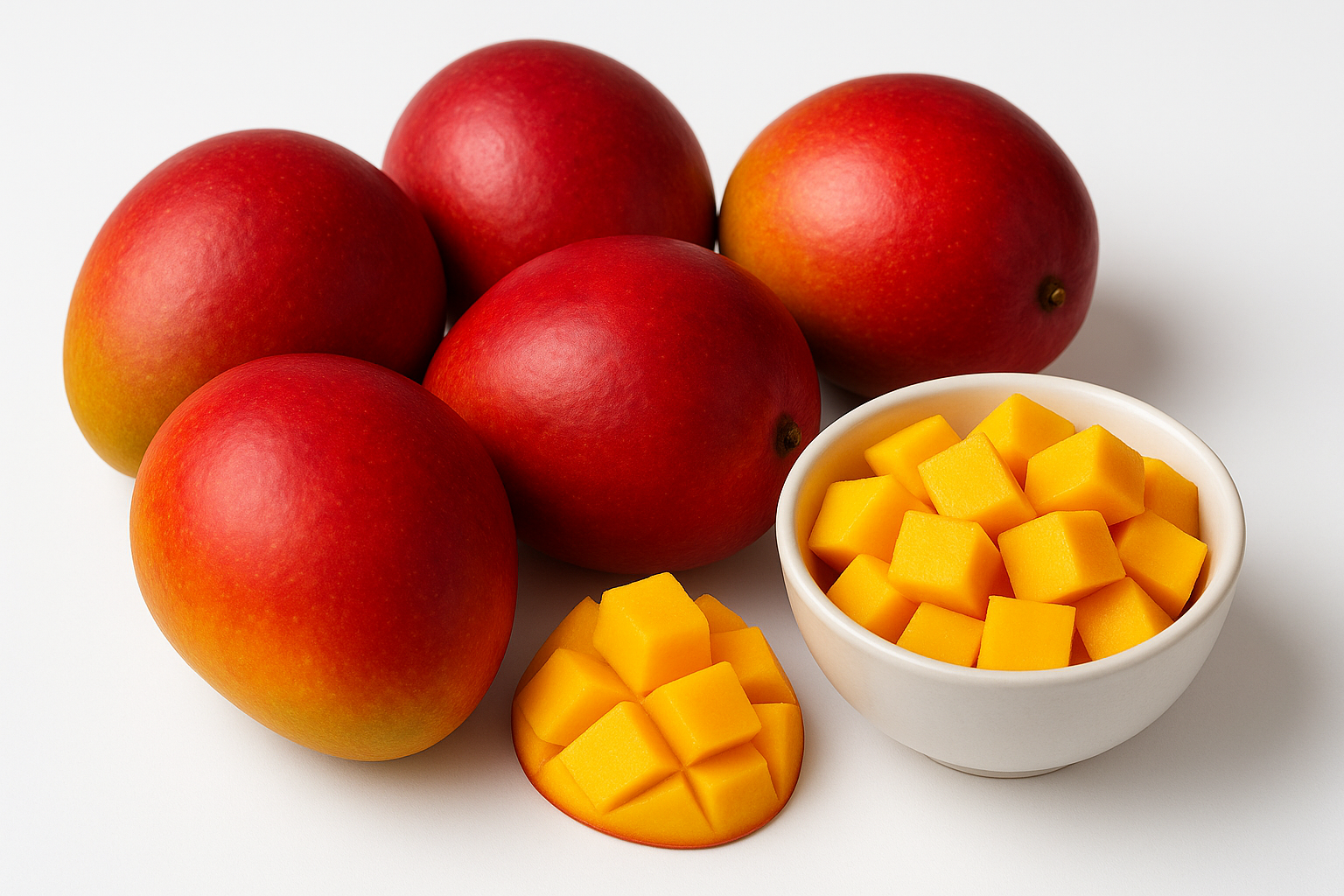Mango and Women’s Health: Study Finds Promising Heart and Metabolic Benefits for Postmenopausal Women
For many women, postmenopause is a major life stage that brings significant changes to health, especially heart and metabolic health. Each year, 1.3 million women enter menopause, and many will spend up to 40% of their lives postmenopausal. With nearly half of American women affected by cardiovascular disease, it’s important to find simple, everyday ways to support wellness during this time.
New research suggests that adding fresh mango to your daily routine may be one of those simple steps by helping support blood pressure, cholesterol, and metabolic health in postmenopausal women.
The Study: Mango’s Impact on Women’s Heart Health
A new study from the University of California, Davis, published in the Journal of the American Nutrition Association, looked at how eating fresh mango every day might support heart health in postmenopausal women. The study focused on generally healthy women ages 50–70 with overweight or obesity, a group that faces a higher risk of heart disease.
For two weeks, participants ate about two servings* of fresh mango daily (330 g, or 1.5 cups), split into morning and evening portions.
The results showed measurable improvements:
- Lower blood pressure: Just two hours after eating mango, participants’ top blood pressure number, or systolic, dropped by an average of 6 points (mmHg). Their overall blood pressure, or mean arterial pressure, also decreased by 2.3 points.
- Improved cholesterol: After two weeks of daily mango, participants’ total cholesterol dropped by nearly 13 points, and LDL (“bad”) cholesterol fell by about 13 points as well.
Mango, Blood Sugar, and Metabolism
A smaller follow-up study with a subset of the original study participants looked at how mango affects blood sugar compared to white bread (a common test food used to measure the body’s response to carbohydrates).
After eating mango, participants had lower blood sugar spikes and their insulin levels rose and fell more quickly, instead of staying elevated like they did with white bread.
These findings suggest that mango may help support better blood sugar control – an important part of heart and metabolic health.
Why Mango? A Naturally Delicious, Nutrient-Dense Choice for Heart Health
Mango is more than just a sweet, delicious fruit. It’s a naturally invigorating source of over 20 vitamins, minerals, and antioxidants that support wellness, including:
- Heart Health: Fiber, vitamin C, low calories with no sodium make mango a delicious part of a heart-healthy diet
- Gut Health: Probiotic fiber, polyphenols and 83% juicy water in mango help support a healthy gut
- Energy and Vitality: Natural carbohydrates and B vitamins help fuel your day
Adding fresh mango to your daily routine is an easy, delicious way to nourish your body and enjoy a naturally invigorating boost of flavor and wellness every day. Whether you blend it into smoothies, toss it into salads, or savor it as a simple snack, mango is a versatile fruit that fits your lifestyle.
Want to know more about mango’s health and wellness benefits? Check out our Naturally Invigorating blog post.
*Serving size = ¾ cup
Source: USDA National Nutrient Database for Standard Reference

